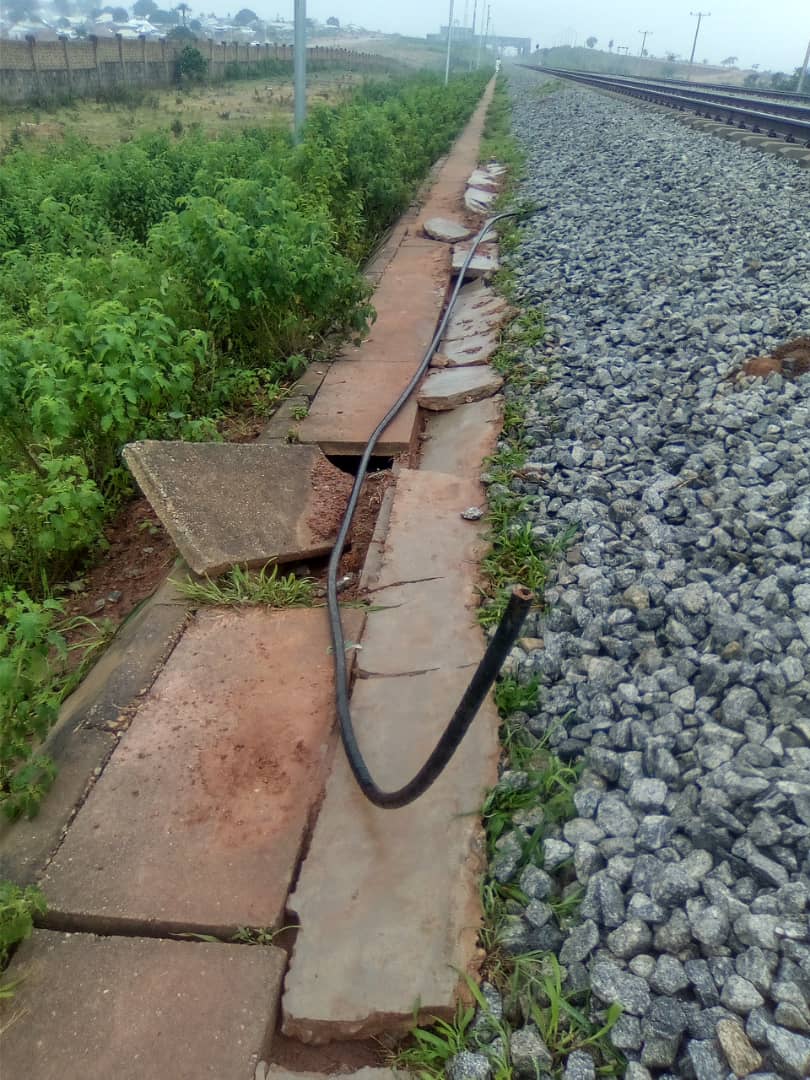
By Akindele Orimolade
Is there an unwritten policy in Nigeria that every major infrastructure project must be sabotaged, destroyed, and re-awarded at inflated cost? That is the uneasy question as vandals mount coordinated attacks on the Abuja Light Rail system, a project valued at over $824 million and hailed as a national pride.
While the federal government spends billions protecting petroleum pipelines, the capital city’s flagship metro line is under siege. Ironically, the attacks are happening just a few meters away from the headquarters of several security agencies.
The Abuja Light Rail, opened in 2018 by former President Muhammadu Buhari after being initiated under President Olusegun Obasanjo, connects 13 communities and 12 stations, including the airport, stadium, and city center. Designed to move nearly 10,000 passengers daily, it was revived on May 29, 2024, when President Bola Ahmed Tinubu and FCT Minister Nyesom Wike re-launched commercial operations as part of the Renewed Hope Agenda.
But even with state-of-the-art stations built at a cost of ₦21.4 billion and 12 diesel multiple units ready for service, the system faces a familiar Nigerian nemesis: vandalism. At Kukwaba 1 and 2, criminals broke concrete slabs to drag out cables, wrongly assuming they were armored. The Nigeria Security and Civil Defence Corps (NSCDC), charged with protecting such critical infrastructure, has been accused of “deep slumber” despite its command headquarters being located within striking distance of the vandalized zones.
Commuters, meanwhile, are torn between gratitude and frustration. Many applaud the six months of free train rides announced by President Tinubu, extended until December 31, 2024, but complain about overcrowding and call for more frequent trips. Others, like resident Aminu Giwa, questioned why vandals could thrive in a city flooded with security operatives, urging government to redeploy officers from VIP escorts to guarding national assets.
With a history of stalled operations, mismanagement, and neglect, the Abuja Light Rail is once again at a crossroads. Whether it becomes a backbone of Nigeria’s modern transport system or another billion-dollar white elephant will depend on the government’s ability to protect and sustain what has already been built.



